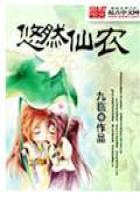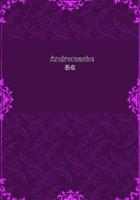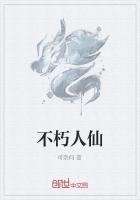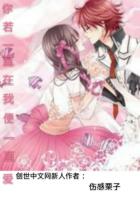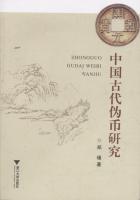While his wife lived, all worldly misfortunes seemed as nothing to him;her strong sense and lively faculty of hope upheld him from despair; her sympathy was always ready, and the invalid's room had an atmosphere of peace and encouragement which affected all who entered it. But when Ruth was about twelve, one morning in the busy hay-time, Mrs. Hilton was left alone for some hours. This had often happened before, nor had she seemed weaker than usual when they had gone forth to the field; but on their return, with merry voices, to fetch the dinner prepared for the haymakers, they found an unusual silence brooding over the house; no low voice called out gently to welcome them, and ask after the day's progress; and, on entering the little parlour, which was called Mrs. Hilton's, and was sacred to her, they found her lying dead on her accustomed sofa. Quite calm and peaceful she lay; there had been no struggle at last; the struggle was for the survivors, and one sank under it. Her husband did not make much ado at first--at least, not in outward show; her memory seemed to keep in check all external violence of grief; but, day by day, dating from his wife's death, his mental powers decreased. He was still a hale-looking elderly man, and his bodily health appeared as good as ever; but he sat for hours in his easy-chair, looking into the fire, not moving, nor speaking, unless when it was absolutely necessary to answer repeated questions. If Ruth, with coaxings and draggings, induced him to come out with her, he went with measured steps around his fields, his head bent to the ground with the same abstracted, unseeing look; never smiling-never changing the expression of his face, not even to one of deeper sadness, when anything occurred which might be supposed to remind him of his dead wife. But, in this abstraction from all outward things, his worldly affairs went ever lower down. He paid money away, or received it, as if it had been so' much water; the gold mines of Potosi could not have touched the deep grief of his soul; but God in in His mercy knew the sure balm, and sent the Beautiful Messenger to take the weary one home. After his death, the creditors were the chief people who appeared to take any interest in the affairs; and it seemed strange to Ruth to see people, whom she scarcely knew, examining and touching all that she had been accustomed to consider as precious and sacred. Her father had made his will at her birth. With the pride of newly and late-acquired paternity, he had considered the office of guardian to his little darling as one which would have been an additional honour to the lord-lieutenant of the county; but as he had not the pleasure of his lordship's acquaintance, he selected the person of most consequence amongst those whom he did know; not any very ambitious appointment in those days of comparative prosperity; but certainly the flourishing maltster of Skelton was a little surprised, when, fifteen years later, he learnt that he was executor to a will bequeathing many vanished hundreds of pounds, and guardian to a young girl whom he could not remember ever to have seen. He was a sensible, hard-headed man of the world; having a very fair proportion of conscience as consciences go; indeed, perhaps more than many people;for he had some ideas of duty extending to the circle beyond his own family, and did not, as some would have done, decline acting altogether, but speedily summoned the creditors, examined into the accounts, sold up the farming-stock, and discharged all the debts; paid about £80 into the Skelton bank for a week, while he inquired for a situation or apprenticeship of some kind for poor heart-broken Ruth; heard of Mrs. Mason's; arranged all with her in two short conversations; drove over for Ruth in his gig; waited while she and the old servant packed up her clothes; and grew very impatient while she ran, with her eyes streaming with tears, round the garden, tearing off in a passion of love whole boughs of favourite China and damask roses, late flowering against the casement-window of what had been her mother's room. When she took her seat in the gig, she was little able, even if she had been inclined, to profit by her guardian's lectures on economy and self-reliance; but she was quiet and silent, looking forward with longing to the night-time, when, in her bedroom, she might give way to all her passionate sorrow at being wrenched from the home where she had lived with her parents, in that utter absence of any anticipation of change, which is either the blessing or the curse of childhood. But at night there were four other girls in her room, and she could not cry before them. She watched and waited till, one by one, they dropped off to sleep, and then she buried her face in the pillow, and shook with sobbing grief; and then she paused to conjure up, with fond luxuriance, every recollection of the happy days, so little valued in their uneventful peace while they lasted, so passionately regretted when once gone for ever; to remember every look and word of the dear mother, and to moan afresh over the change caused by her death--the first clouding in of Ruth's day of life. It was Jenny's sympathy on this first night, when awakened by Ruth's irrepressible agony, that had made the bond between them. But Ruth's loving disposition, continually sending forth fibres in search of nutriment, found no other object for regard among those of her daily life to compensate for the want of natural ties. But, almost insensibly, Jenny's place in Ruth's heart was filled up; there was some one who listened with tender interest to all her little revelations;who questioned her about her early days of happiness, and, in return, spoke of his own childhood--not so golden in reality as Ruth's, but more dazzling, when recounted with stories of the beautiful cream-coloured Arabian pony, and the old picture-gallery in the house, and avenues, and terraces, and fountains in the garden, for Ruth to paint, with all the vividness of imagination, as scenery and background for the figure which was growing by slow degrees most prominent in her thoughts. It must not be supposed that this was affected all at once, though the intermediate stages have been passed over. On Sunday, Mr. Bellingham only spoke to her to receive the information about the panel; nor did he come to St. Nicholas' the next, nor yet the following Sunday. But the third he walked by her side a little way, and, seeing her annoyance, he left her; and then she wished for him back again, and found the day very dreary, and wondered why a strange, undefined feeling, had made her imagine she was doing wrong in walking alongside of one so kind and good as Mr. Bellingham;it had been very foolish of her to he self-conscious all the time, and if ever he spoke to her again she would not think of what people might say, but enjoy the pleasure which his kind words and evident interest in her might give. Then she thought it was very likely he never would notice her again, for she knew she had been very rude with her short answers;it was very provoking that she had behaved so rudely. She sould be sixteen in another month, and she was still childish and awkward. Thus she lectured herself, after parting with Mr. Bellingham; and the consequence was, that on the following Sunday she was ten times as blushing and conscious, and (Mr. Bellingham thought) ten times more beautiful than ever. He suggested that, instead of going straight home through High Street, she should take the round by the Leasowes; at first she declined, but then, suddenly wondering and questioning herself why she refused a thing which was, as far as reason and knowledge ( her knowledge) went, so innocent, and which was certainly so tempting and pleasant, she agreed to go the round; and, when she was once in the meadows that skirted the town, she forgot all doubt and awkwardness--nay, almost forgot the presence of Mr. Bellingham--in her delight at the new, tender beauty of an early spring day in February. Among the last year's brown ruins, heaped together by the wind in the hedgerows, she found the fresh, green, crinkled leaves and pale star-like flowers of the primroses.
同类推荐
热门推荐








